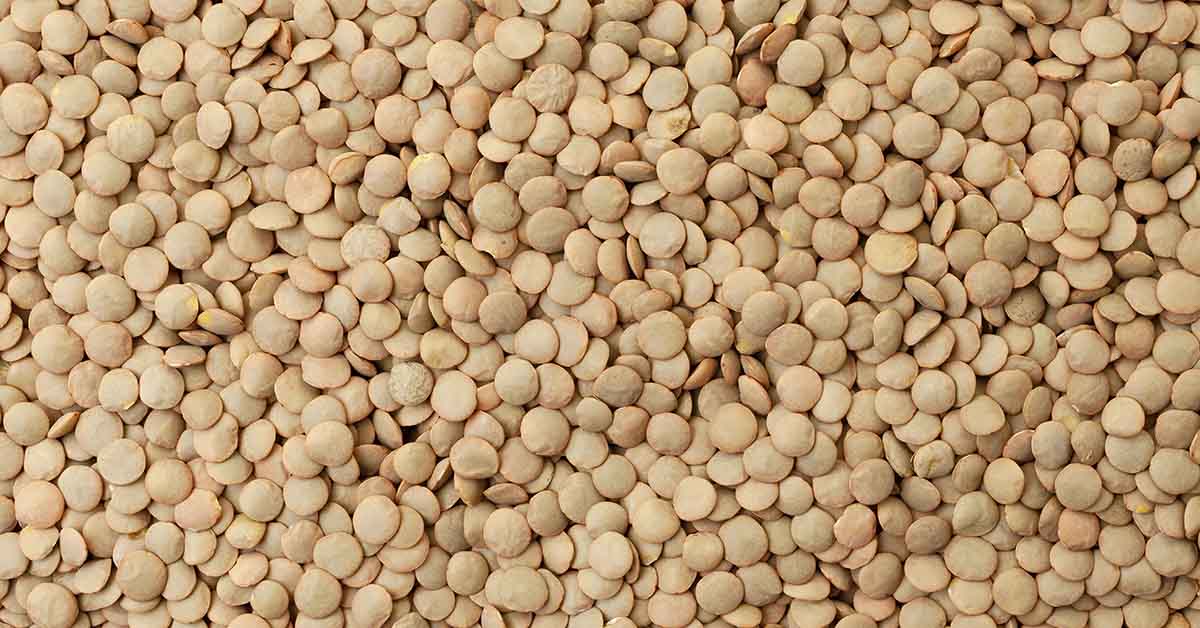In April, many Americans lost confidence in the economy. The cost of living has been rising for years, but President Donald Trump’s tariffs are creating a new form of financial anxiety. Some believe the country is heading into a recession, and many are seeing proof in the form of higher prices on clothes, furniture, appliances, and groceries. Even those who don’t follow the news realize something is wrong when they stare at their receipt wondering why a routine shop is suddenly so expensive.
How to Shop for Recession-Proof Groceries

Not every item comes with spiked prices. Some stay moderately unaffected from the tariffs and inflation. And some are budget-friendly, no matter the financial climate. This can be especially helpful for those trying to navigate the uncertainty of today’s labor market. Needless to say, American consumers are stressed and losing confidence in the economy, reports KTAL News. And food is a painful and terrifying thing to be anxious about. So the next time you shop for groceries, add these “recession-proof” items to your list.
Dry Legumes
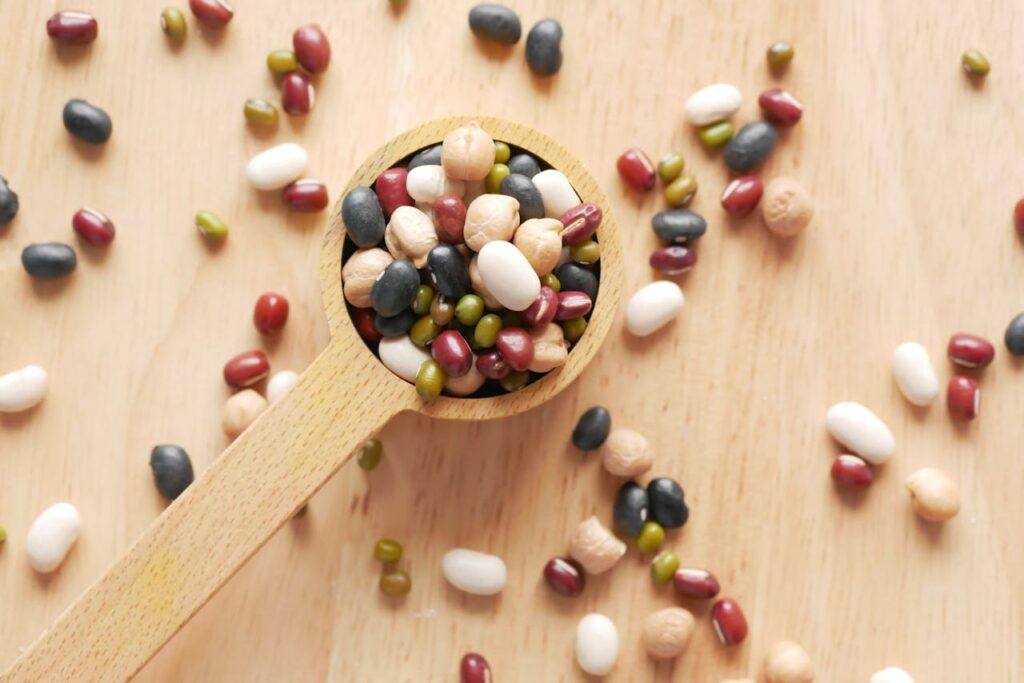
Because of the tariffs on imported aluminum and steel, canned goods are likely to go up in price. Fortunately, that doesn’t mean the end of beans and the like. Instead, go for dried legumes, which are more cost-effective anyway. People prefer canned versions because they are ready-to-eat, but cooking dried beans and lentils isn’t that daunting. Start by rinsing the beans before soaking them overnight to improve their digestibility. Drain the liquid and rinse once again. Then cook the legumes on the stove, in a slow cooker, pressure cooker, or instant pot. (Keep in mind, lentils and split peas don’t need overnight soaking, so choose those if you’re short on time.)
Seasonal Produce
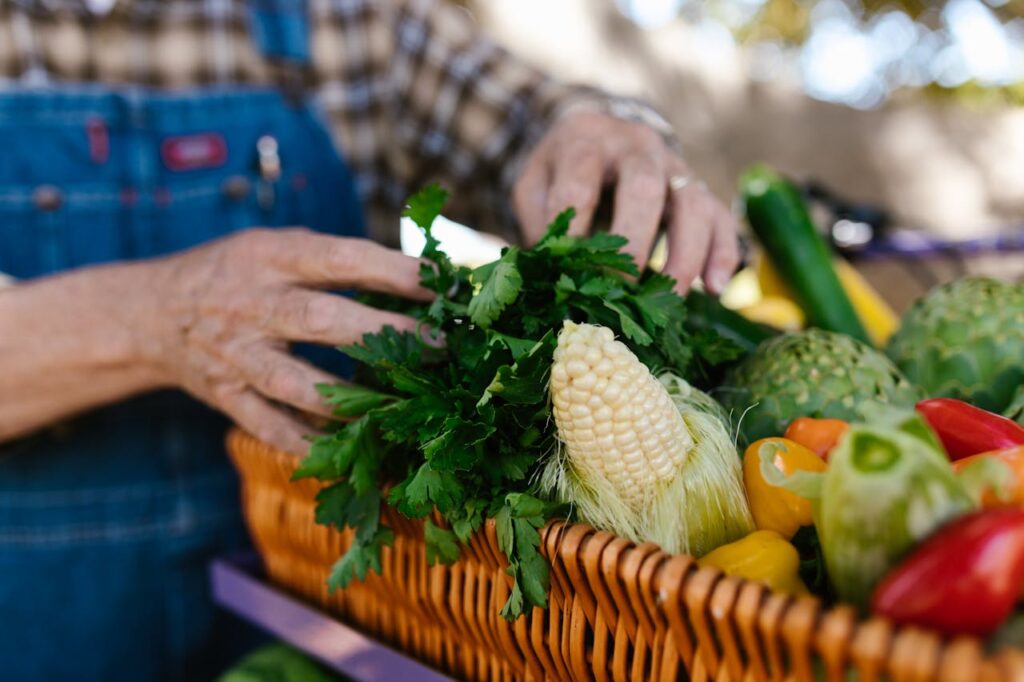
Imported fruit and vegetables are increasing in price, so look for produce at a farmer’s market, recommends Eating Well. Shopping for domestic products can go a long way when it comes to saving money. It may limit your options to seasonal produce but that might lead to a new appreciation for the flavors and some new favorite recipes. There still may be price fluctuations, from factors like fuel, labor, and weather.
Pancake Syrup
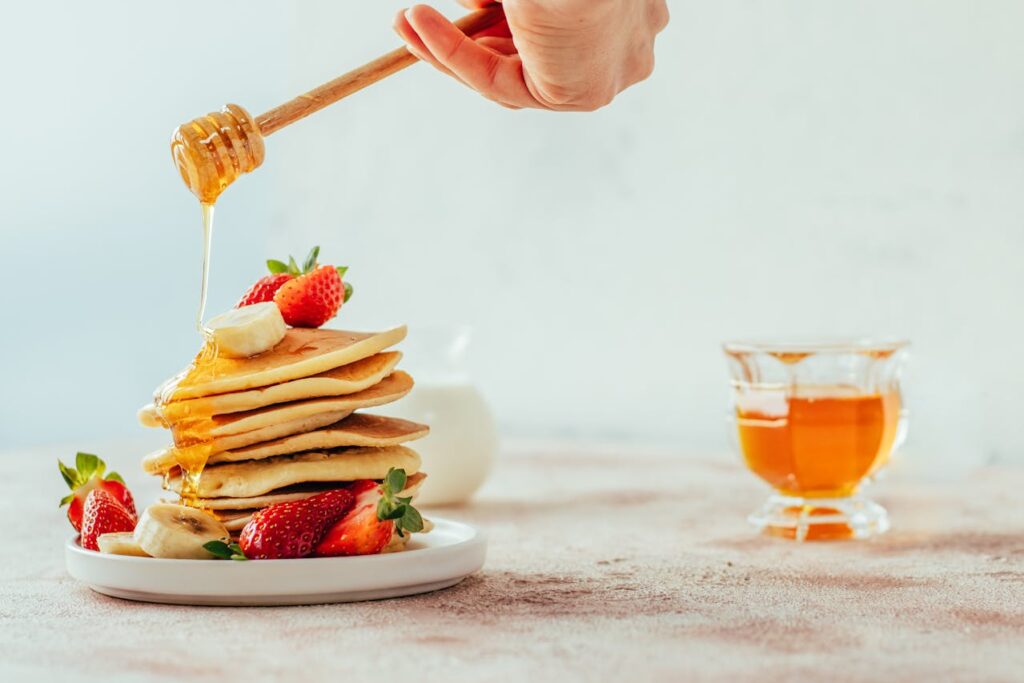
We’re using the loose definition of pancake syrup here. Some people avoid store-bought pancake syrup since it’s usually made of corn syrup and opts for pure maple syrup. But with Canada being the prime maple syrup importer to the U.S., maple syrup is going to see some price hikes. Fortunately, you are not stuck with either corn syrup or plain pancakes. Try locally-sourced honey, date syrup, or even homemade fruit-based syrup. Plus, maple syrup is grown in the U.S. as well so look for American brands in your local grocery store.
Baking Ingredients

If you’ve enjoyed perusing the snack aisle, you may be appalled at the new prices for old favorites. You can always look for a cheaper version, but the most economical solution is often to bake it yourself. Once you find a recipe you like, you can save time and effort by multiplying the batches and freezing the goodies for months. Alternatively, you can freeze cookie dough, let it thaw in the fridge for a day, bake it, and enjoy it hot from the oven.
Buy Frozen

Despite what some might think, fresh produce isn’t necessarily better than frozen. The freezing process can lead to a slight decrease of certain nutrients, but the same thing can happen to fresh produce during storage. Most of the time, fruit and vegetables are at peak ripeness when they are flash-frozen, which can help preserve their nutritional content. All of this to say, opt for frozen produce since it’s typically less expensive, and the same goes for frozen poultry, beef, and fish, advises Nerd Wallet.
American-made cheese
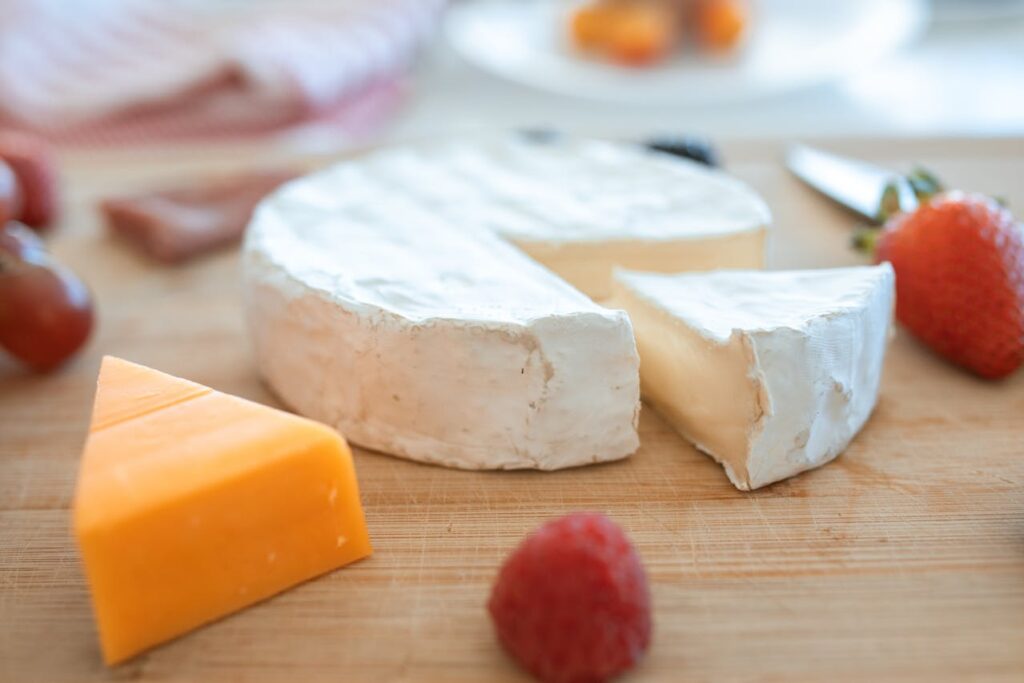
When it comes to recession-proof groceries, locality is the best bet, and that applies to dairy products as well. You may miss butter from Ireland, Parmigiano-Reggiano from Italy, Brie from France, and Gruyère from Switzerland. However, you can still enjoy quality dairy products that were made closer to home. In this economy, it’s extra important to support local farms, and you may find a new favorite cheese in the process.
Potatoes
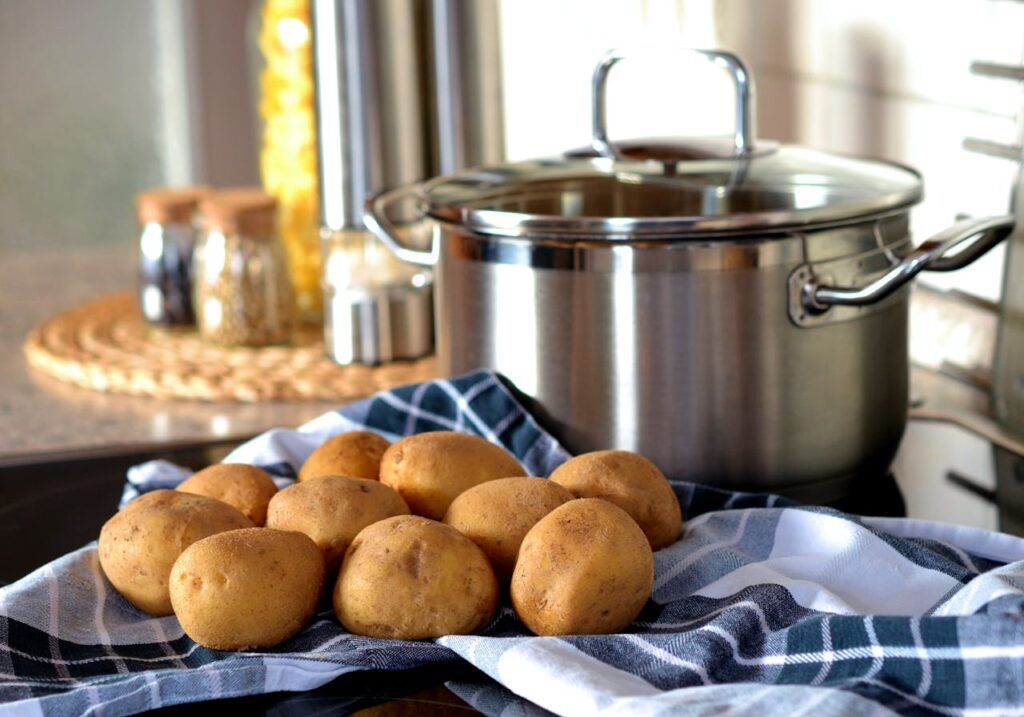
These days, potato chip bags seem to contain more air than chips, and for much higher prices. The good news is that the spuds themselves should stay reasonably priced. Potatoes are popular and plentiful crops in the USA, and therefore less susceptible to tariffs and global supply chain issues. Because of low-carb diet culture, potatoes get an undeserved bad rap. In reality, they contain starch that helps people feel full after meals. They also have nutrients like vitamin C, vitamin B6, fiber, and more potassium than bananas, says AARP. Potatoes can become unhealthy when they are deep-fried or smothered in cream or cheese, so instead enjoy them oven-roasted, baked, in salads, boiled, or steamed. And keep the skins on for added fiber.
More American-Based Products to Add to Your Shopping List:

- Rice
- Peanuts and peanut butter
- Wheat and bread
- Poultry
- Eggs
- Bottled water and soda
- Domestic canned goods
- Pistachios and almonds
Tips for Recession-Proof Shopping

- Plan your meals beforehand: Before grocery shopping, take an inventory of your pantry, fridge, and freezer, and let your stock become the basis for your meals.
- Make a list: After you know what you want to cook, make a grocery based on that. Don’t forget snacks, drinks, or dried goods if needed. Having a complete and thorough list can help prevent impulse purchases and ingredients with no idea how to use them.
- Be calm: Avoid shopping while stressed, hungry, or in a rush, since you may be more likely to go over budget.
- Make the most of leftovers: Double a recipe and freeze half of it for another day when you are short on time, don’t feel like cooking, or are tempted to order takeout. In the same vein, you can cook extra dinner so you’ll have lunch ready for the next day.
Read More: 7 Ultra Processed Foods That Aren’t as Unhealthy As You Think
